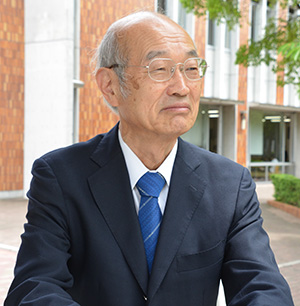On March 26th, the Ministry of Land, Infrastructure, Transport and Tourism issued an order to Nissan Motors to improve its operations over the issue of unqualified employees conducting final inspections. As the company had not conducted inspections properly even after the problem was discovered in September last year, Minister of Land, Infrastructure, Transport and Tourism Ishii reportedly told Nissan Motors President Nishikawa that "the organization, including the management, bears a great deal of responsibility." As a result, the company is now required to submit quarterly reports on its progress in preventing recurrence, and the Ministry has also increased the frequency of surprise inspections by placing the company under priority monitoring.
As the Minister of Land, Infrastructure, Transport and Tourism stated, it seems best to think of the problem of on-site capabilities as a problem for management. Let's look at it from two perspectives. First, the company's on-site staff are obligated to follow the management's policies. All work orders are based on the top management's policies. If you do not follow your superior's instructions, you will be in violation of work orders and will be subject to certain punishment.
It is inconceivable that cutting the bogies of bullet trains so thin that it could lead to a major accident, or cutting corners in inspections, would be done solely on the judgment of the field. There is no benefit to the field, and therefore no incentive to do such things. This is the same for manufacturing sites and head office departments. Toshiba was found to have falsified its accounts on a huge scale, and the investigation report by a third-party committee revealed that the field staff knew they should not have done so but had no choice but to follow the orders of the top management.
The same pattern can be seen in the Moritomo Gakuen document falsification issue at the Ministry of Finance, which is causing a stir in the Diet. Regardless of whether the falsification was ordered unilaterally by the Director-General of the Finance Bureau, the staff on the ground must have followed the instructions and orders of those in power. There is no benefit for staff on the ground to falsify documents of their own volition. The suicide at the Kinki Finance Bureau is evidence of this.
Another aspect is that the sense of unity that once existed between management and the workplace seems to have been lost, at least in companies. Since the 1990s, when the bubble burst and the growth potential of the Japanese economy dropped sharply, it seems that the vectors (the direction to aim for) between management and the workplace no longer matched, and I can't help but feel that this is the root of the problem. When the Japanese economy was on a growth path, both the company and employees could become wealthy if they worked hard, so it was a win-win relationship between management and employees (workplace). However, when growth stalled, a situation was created in which management rushed to restructure and the workplace was busy trying to achieve strict management targets.
What I want to emphasize here is that the behavioral philosophy of managers has changed significantly since the late 1990s. Until then, under the so-called "Japanese management," managers of at least medium-sized companies and above adhered to the lifetime employment system and were integrated with employees (on-site). In a survey conducted by the Japan Business Federation and other organizations at that time, the majority of managers answered that "employees are the most important thing for management." However, the situation is completely different now that the Japanese stock market has become more internationalized. The American idea that shareholders are the owners of a corporation and that the goal of management is to raise stock prices as much as possible and increase shareholder dividends has become widespread. As I have mentioned before in this column, the reality is that while company profits are at an unprecedented high, employee salaries remain stagnant and dividends are increasing.
Shareholders are important, but managers need to remember that there is no business without the employees (on-site) who support the business. But can managers change? I would like to reconsider this issue.
(March 27, 2018)

[Profile of Shigeo Uchida]
Born in 1941. Graduated from the Faculty of Economics at Keio University in 1965 and joined the Nihon Keizai Shimbun. After working in the Securities Department of the Editorial Department, the Japan Center for Economic Research, head of the Securities Department at the Tokyo Head Office and as an editorial writer, he is currently Managing Director the Chiba Gakuen School Corporation and Professor Emeritus Chiba University of Commerce.
<Major publications>
"Seminar: Introduction to the Japanese Economy" (co-author, Nihon Keizai Shimbun)
"Showa Economic History (Part 2)" (co-author, Nihon Keizai Shimbun)
"The New Japanese Economy" (co-author, Nihon Keizai Shimbun)
"History of Japanese Securities 3" and "Now You Can Understand! How the Japanese Economy Works" (sole author, Nihon Keizai Shimbun, Inc.)
"New Introduction to the Japanese Economy" (co-author, Nikkei Publishing Inc.) and others